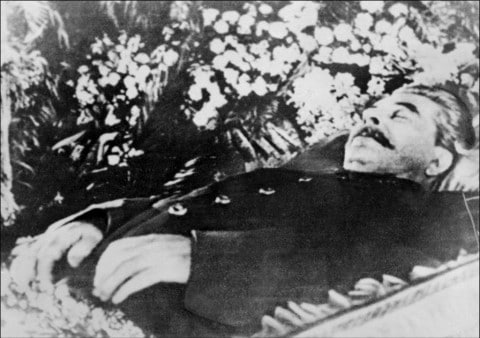Glenn Gould on the day that Stalin died
mainMarch 5, 1953 was also the day Serge Prokofiev died.
Gould plays and talks Prokofiev in this rarely seen recording.


March 5, 1953 was also the day Serge Prokofiev died.
Gould plays and talks Prokofiev in this rarely seen recording.

The Washington Examiner reports that next Tuesday’s celebration…

The thoughtful American composer Richard Wernick died yesterday…

The Fedora Prize was awarded last night at…

The CBSO music director Kazuki Yamada, who last…

Session expired
Please log in again. The login page will open in a new tab. After logging in you can close it and return to this page.
Comments